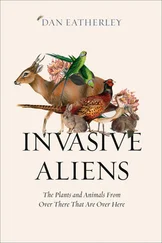We continued to be curious about Alba Cambó, who published several more short stories in Semejanzas . Some of them were really violent, and frequently the violence was perpetrated by women and children against men. According to one of Mum’s male friends, a psychologist who taught at the Complutense University of Madrid, Alba Cambó’s short stories were unnatural and based on falsehoods about the human psyche in general and the male psyche in particular. The stuff about the psyche was not something we could judge. But we bought the magazines and kept them in the box for newspaper cuttings. I also think that Alba Cambó won some more awards, which led to some rather merry parties on her terrace, parties where people smoked marijuana, sang and laughed while we sat up there listening in the semi-darkness. She continued her excessive lifestyle well into the night as well. She did not come home until the early hours and always slept until late.
‘A real woman with a real life,’ Mum once said about Alba Cambó, and there was no mistaking a note of envy in her voice.
It wasn’t until a few days after she moved in that we realised Alba Cambó had not moved in alone. A new nameplate on the post box in the hall informed us that Alba Cambó Altamira and Blosom Gutiérrez Gafas now lived in the flat below. We saw Blosom that same evening, when we found her to be beautiful, black-skinned, and seemingly reserved and rather large. Mum said that she must be Alba’s personal assistant because she had to come from somewhere in Central America to judge by her accent. We would soon discover that she was just as uncommunicative as Alba Cambó herself, and never said hello if you happened to meet her on the street. She would stride past instead with an expression that declared ‘I know you are there but I have no intention of saying hello because we do not know one another.’ Her solemn and dignified manner (Mum referred to it as carrying her tail in the air) made it impossible to take the first step and start up a conversation of any kind. All the same she and Mum did begin talking one afternoon at the grocer’s. I have no idea what they talked about in the shop but when Mum came home the focus of her attention had shifted from Alba to her home help. Mum screwed together the coffee maker in the kitchen and, while she was putting out the cup and the sugar bowl, she said that observing Alba wasn’t particularly rewarding because she almost always sat still down there with paper and pen and a furrowed brow. The only action Cambó performed was focused on a cup she had beside her and which she drank from now and then, a movement not at all inspiring to a possible observer. Blosom, on the other hand, always had something going on. She hummed, laid the table, looked after the potted plants or laughed out loud at things she heard on the television or the radio in the living room. She shifted her body around in the heat in leisurely fashion, picking at Alba’s pots, removing dried leaves and watering them with the hose once the sun had gone down, so as not — as the women of the neighbourhood used to say — to burn the plants with water during the heat of the day. Sometimes she would go round with a pair of clippers, taking a bit off this plant and then that, moving some of Alba’s pots around and taking dirty wine glasses into the kitchen. From time to time she filled up the water in the little basin Alba had put up on one of the walls. Mum said that Blosom had acquired the habit of dipping her fingers very quickly into the little pool every so often when she passed it and then making the sign of the cross — it was a habitual movement, a reflex drummed in over years, decades maybe, and we wondered what Blosom’s religion actually was. There was a kind of stiffness to her way of making the sign of the cross, the kind of stiffness that comes with learned behaviours that have never become entirely natural to the person who has learnt them.
In the daytime Mum would sometimes hear Blosom and Alba talking while Blosom hung out the washing. They chatted like two girlfriends or sisters and there didn’t seem to be any differences between them then; when you shut your eyes and listened you couldn’t tell who was the mistress and who the servant. If Mum went close to the railing she could see Blosom bend over the washing basket and pick up an item of clothing or a sheet, and then stand up and peg the fabric to the clothes line. When she bent down again her buttocks could be seen straining against the material of her dress, and they were large, soft and round with the fabric stretched across them, damp with her sweat. I’ve never ever seen buttocks like that, said Mum. Sometimes it looked to her as though the cloth might split and those buttocks would then bloom through the hole in her dress. That was what she imagined, Blosom’s enormous buttocks suddenly bursting forth through a split in her skirt. And that wasn’t some sort of indecent fantasy, Mum said as if to defend herself, it was the only thing you could think as someone observing the situation: all that fabulous physicality in all its magnificence.
Soon, though, it was at night that the real encounters between Mum and Blosom took place, if you could refer to real encounters at this point. Because once the door had shut behind Alba, Blosom would start clearing the dinner things. She went back and forth between the table on the terrace and the kitchen; you could hear her piling plates and dishes on top of one another. Then it was her turn to go out onto the terrace with a glass of wine. First she wiped her neck and arms with a wet cloth and her breathing was strained as though she had been for a very long walk or a run. Then she relaxed. Her powerful arms lay along her body, her stomach distended and her gaze lost in the windows of the building opposite. From the chair Mum sat in she could see Blosom’s matted black hair sticking up just a few metres below. Mum used to sit there in absolute silence from fear that Blosom would think she was spying. Half an hour would pass in this way, an hour, sometimes even longer. Mum even wondered sometimes whether Blosom had fallen asleep down there. But then all of a sudden Blosom would get up, take the dirty wine glass with her into the flat and Mum would get up too and do the same.
At that time we used to buy our clothes at a market in Poblenou. I don’t know why we went all the way to Poblenou to shop for clothes, there were cheaper places nearer us, but Mum insisted on driving there. We used to go early in the morning, before the start of work and school, and when we arrived we were confronted by mountains of clothes, together with housewives and servants from the neighbourhood. We looked for bargains in the piles of underwear, skirts and quilted jackets of poor quality. If you found something you liked you pulled hard on the item of clothing, looking out of the corner of your eye at other people tugging at the same thing. Pitched battles could be waged in silence over beige knickers and nude bras at the market in Poblenou. When we drove home afterwards in Mum’s car, we sometimes stopped to fill up at the neighbourhood petrol station. Mum never filled up more than the reserve tank. I think that said something about our lives, because how can you call the reserve tank a reserve when it’s all you have?
Now and then we used to say how we longed to get away from this life and this building. How we were really nomads, not made to live between four walls, not suited to being locked in and having to live out our lives within ninety square metres. When we eventually shared these thoughts with Alba Cambó, she responded that it was true that you had to watch out for buildings because their main task was to maintain the decay going on inside their occupants. It does people good to wander, to be outside breathing clean air, she said. Letting yourself be confined inside walls just fuels the mould growing inside you. That’s right, Mum said. One day maybe we will get out of here, go off somewhere. What are you waiting for? Alba Cambó asked. I don’t know, Mum said. For Araceli’s father to come back maybe. Cambó laughed. Crap! she shouted then. You’re not waiting for any old dad, you’re waiting for Godot like everyone else.
Читать дальше












